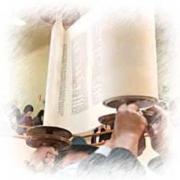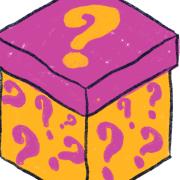The Shattered Dreams
As you know, in Parashat Shelach, the nation asks Moshe Rabbeinu to send out spies to spy out the land, even though Hashem has told them to go into the land. Moshe is not too excited about this idea, so he asks Hashem. Hashem tells him to send them for himself—Shelach Lecha Anashim in Parashat Shelach 13:2. We all know the end of this episode in history—the meraglim return with a bad report. Due to the sin of slandering the land, all the males ages 20 to 60 were buried in the desert, and were not able to enter the Promised Land.
It seems harsh that, because of biased calculations by a few, so many people are punished. Here they are, standing just a few days away from Eretz Yisrael, and about to enter the land. Suddenly, people come and ask Moshe Rabbeinu to send out the spies. This is something Moshe Rabbeinu doesn't want to do, since Hashem already told him to go into the land, since it is yours and Hashem is with the nation. But the few turn everything around and put Moshe in a difficult position, forcing him to ask Hashem for permission to send people as spies, risking that something might go wrong. And something does go wrong—the meraglim return with a bad report, slander the land, and Hashem tells everyone to turn around and go back into the desert...
Have you ever thought for a second how Moshe Rabbeinu felt?! When Moshe Rabbeinu watched those people slandering the land, and Yehoshua and Kalev defending it, Moshe Rabbeinu knew it was trouble, not only for those who slandered but for the whole nation.
The years of work that he has put in were crumbling right in front of his eyes. His dream to go into Eretz Yisrael, and to serve Hashem in the Holy Land, was being taken away from him - right there in the broad daylight.
Have you ever had that feeling? You worked on something for years, and suddenly it is being taken away from you by some evildoers and by circumstances over which you have no control.
Not a good feeling.
But let's look into it from a different angle.
There's a mitzvah that is hard to understand and makes one wonder why Hashem has given it to us, but in the light of the above explanation, it will start to make more sense.
There are many explanations for the mitzvah of Shiluach haKen, but I would like to take Zohar's explanation and expand on that. The Zohar says that this mitzvah is meant to awaken and intensify Hashem’s mercy on His creations. The pain the mother bird suffers when she is sent away and forced to abandon her young "awakens the forces of mercy in the world" and releases an outpouring of mercy from the Heavens above, alleviating all kinds of human suffering.
I would like to add to the above with your permission.
Not to go into the details of this mitzvah, but to touch on it in general: if you have ever performed this mitzvah, the feeling you are left with after completing it is not enjoyable. Besides the fact that you have made the mitzvah, you are left with an egg, and you have left the bird feeling bad - very bad. You have taken her egg or a chick and created that void in the heart of the bird—you have broken her hopes of building a family and ruined her plans for a "bright birdie future".
And here Hashem comes and gives us this, as a mitzvah.
Moshe Rabbeinu worked hard in his 80s, dealing with the nation, which was not easy—a stubborn nation with lots of demands and quarrels. On top of that, the leaders who worked under him ideally had to be on the same page with him, but for some reason, they had their own agenda that he never agreed to or even knew about. All this brought to one result - that generation never made it to Eretz Yisrael, Moshes' goal crumbled, and he had to witness the passing of all the males ages 20 to 60.
The meraglim didn't just destroy the dream of that generation; they also destroyed the dream of Moshe Rabbeinu. They brought suffering to our nation to this day, and they have totally changed the nation's plans, and everything unfolded not as Hashem had envisioned.
So, Torah tells us to go ahead and do the mitzvah, to go through that uncomfortable feeling, and to let it sink in—feel that bitterness of the committed act.
When we send away the mother bird and take her egg - it may seem, like the meraglim behaved back in the day towards the nation, when they went to Eretz Yisrael, and brought back the bad report that caused a lot of people to suffer - and here we are, taking away the eggs from the shooed away mother bird thus causing her pain and suffering.
As for the mother bird—whatever she is going through —it is like the feeling of what Moshe Rabbeinu and millions of other people not privy to the scheme of the meraglim felt: betrayal of the assigned mission and the shattering of the dream of entering the Eretz Yisrael.
And as we stand there with an egg in our hands, we need to understand one thing - whatever we do or say in our life, may be breaking the Divine law and order and hurting a lot of people around us, whether intentionally or unintentionally, just by giving in to our biased desires and calculations, as was with the case of the meraglim.
Armed with the above understanding, it should bring us to pray to Hashem and to ask for forgiveness for the sin of the Meraglim, and for that whole generation. This would be the perfect time to ask for forgiveness for our own miscalculations, where we thought and said not in the best of intentions. And this would be the best time to ask for forgiveness for our nation as a whole, and to ask for the full redemption and reunification with that passed on generation, so we can meet with Moshe Rabbeinu and other members of our nation of the past who were not able to enter the Land, due to the bad schemes of others.
By fulfilling this mitzvah, one is rewarded with marriage, children, and a new home. But most importantly we are taking responsibility for the wrong committed in the past by others, by actively fixing the sin of the past which brings Hashem's mercy onto this world, that stops human suffering and brings the redemption closer.
Shmuel Katanov















